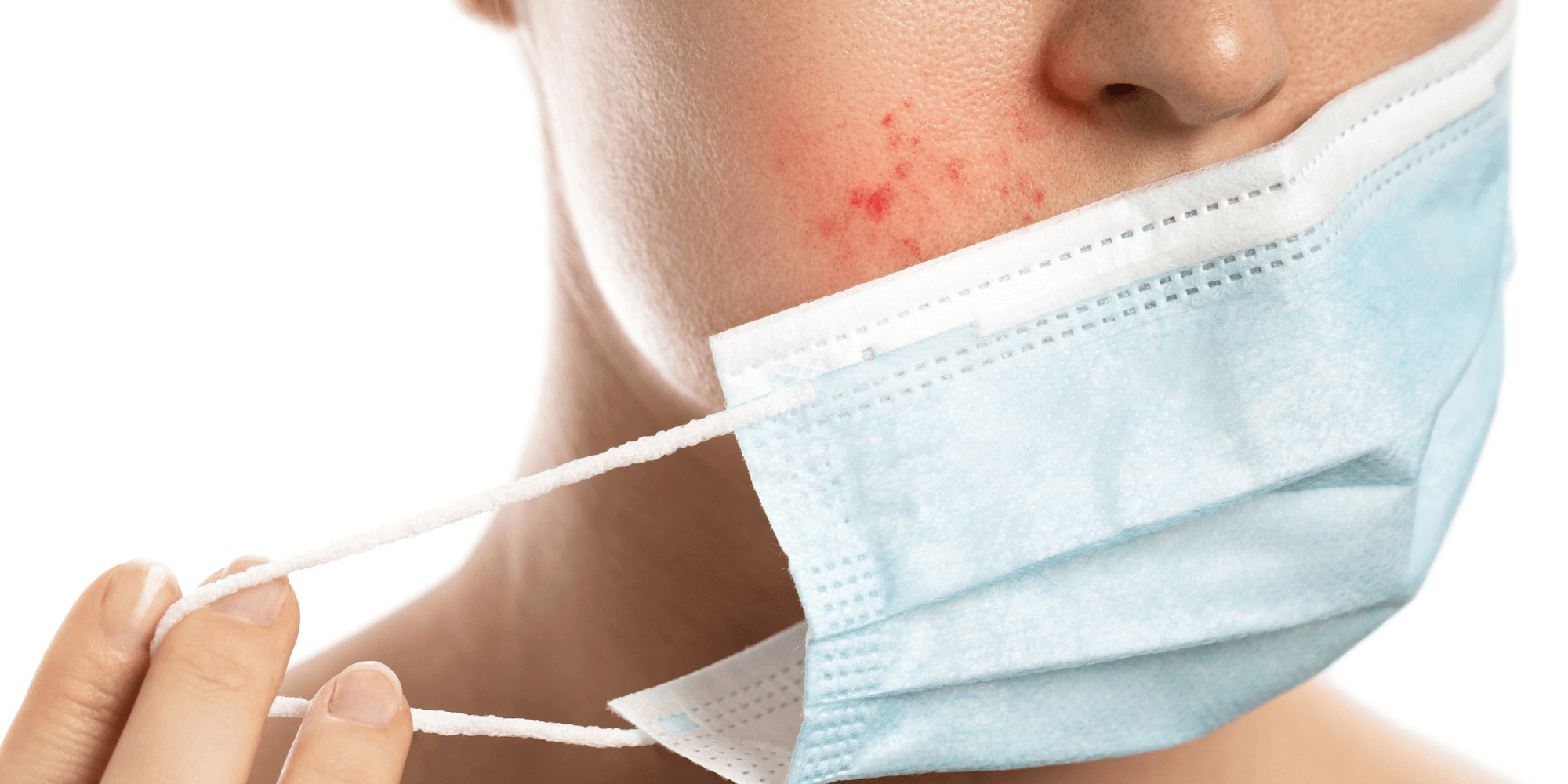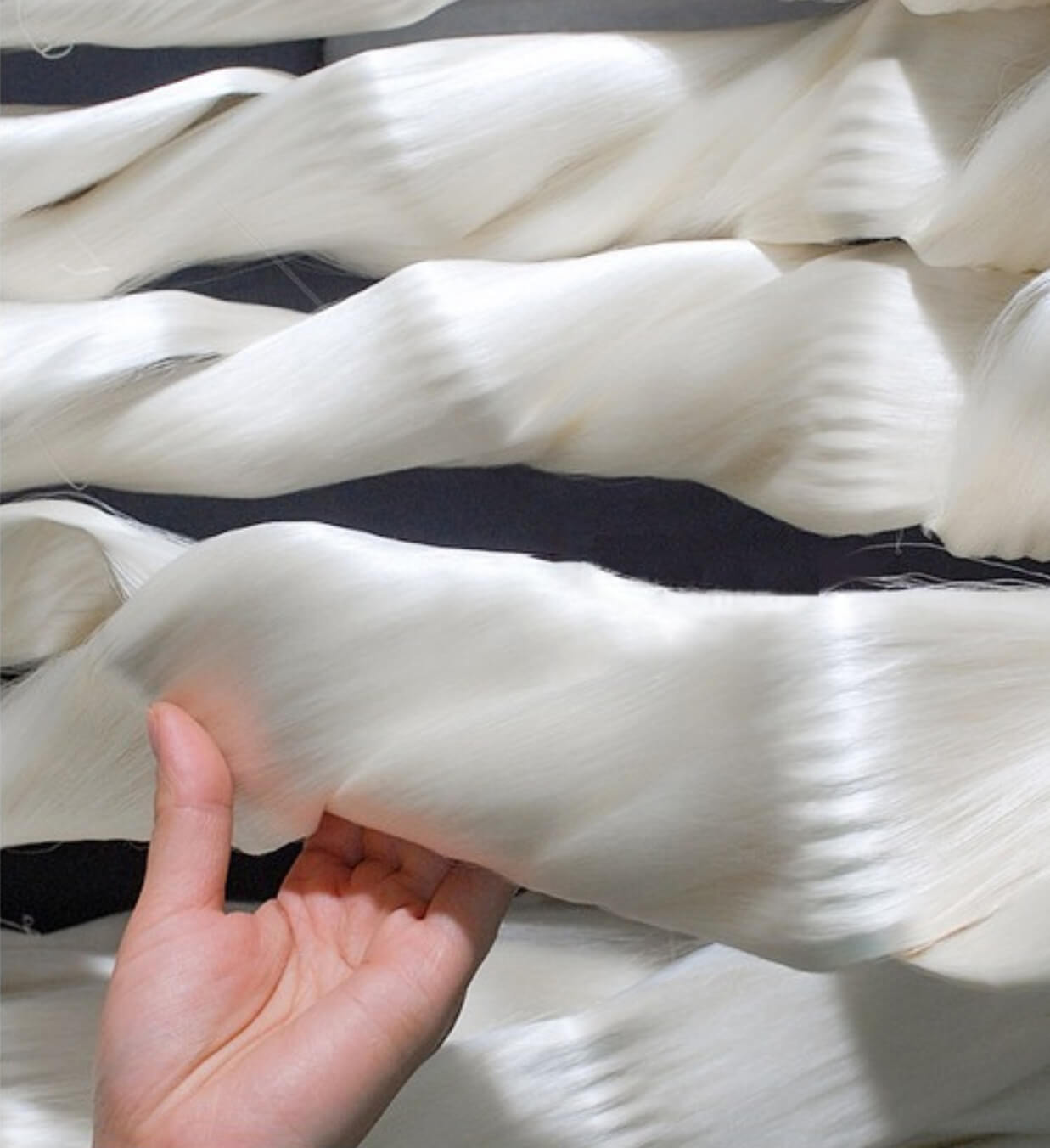What is Maskne?
Maskne is a form of acne that causes breakouts in the areas covered by a face mask – the jaw, cheeks, nose, chin, and around the mouth.
Maskne doesn’t simply cause pimples, though.
It may also result in other skin issues including redness, bumpiness, and irritation.
What causes Maskne?
Generally, there are 4 main causes of Maskne.
#1 - Clogged pores
Your pores already have oil, dead skin cells, and dirt on your skin surface. But when you wear a mask, these dirt, oil and even bacteria can build up more and clog your pores.
#2 - Moisture trapped inside the mask
Material like cotton absorbs and traps moisture like a sponge.
When you breathe, sweat and when you talk with the mask on, there will be heat and moisture trapped inside your mask and also in your mask fabric.
These are the perfect environment for bacteria growth. If you need to wear your face mask for a long period of time, you’ve got yourself a prime reason for breakouts.
#3 - Frictions
You might like the fancy pattern of the nylon or polyester made or cotton face masks.
But, do you know that rough surface of these fashion face masks will constantly create frictions on your skin's surface and subsequently break down your skin's barriers.
This make your skin even more sensitive to the material of your mask.
It can also result in redness, rashes, skin flare-ups, along with other types of skin irritation and pimples.
#4 - Allergic/skin sensitivity
Apart from the frictions that causes the skin sensitivity and allergic, another culprit for skin sensitivity is the chemicals used on the face mask you wear. Some cotton masks might still contain some pesticide residue used to grow the crop and there will also be chemical dyes used in the making of those fashion masks. These chemical might irritate the skin further.
How to Prevent Maskne?
#1 - Choose the Right Mask
Opt for a mask made of natural, breathable materials like mulberry silk face mask. Avoid synthetic fabrics that can trap moisture and heat against your skin.
Click to read more on why should you use a silk face mask
#2 - Clean Your Face Regularly
Wash your face with a gentle, fragrance-free cleanser before and after wearing a mask. This helps remove excess oil, sweat, and bacteria.
#3 - Wash Your Reusable Face Mask Regularly
If you're using a reusable mask, wash it after each use with fragrance-free detergent. This helps remove any bacteria and oils that can build up on the mask.
#4 - Use a Clean Mask
Change your mask if it becomes damp or soiled. Carrying extra masks with you can be helpful
#5 - Avoid Touching Your Face
Refrain from touching your face, especially the mask-covered areas, to minimize the transfer of bacteria and oils from your hands to your skin




